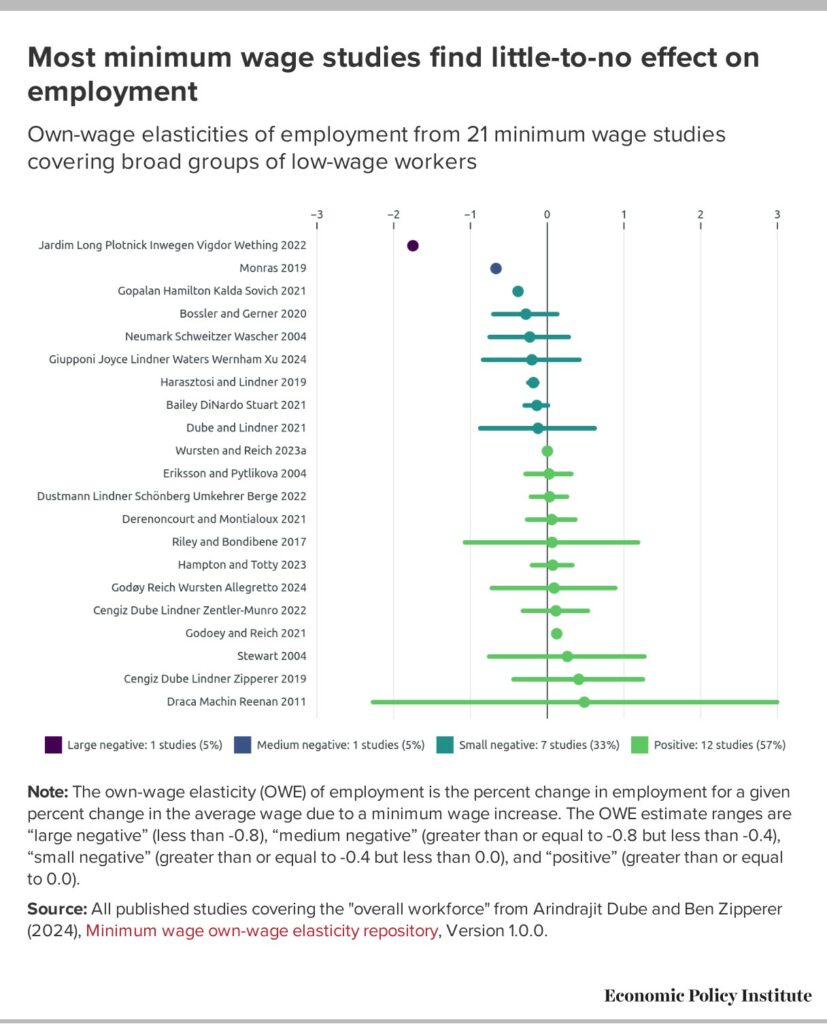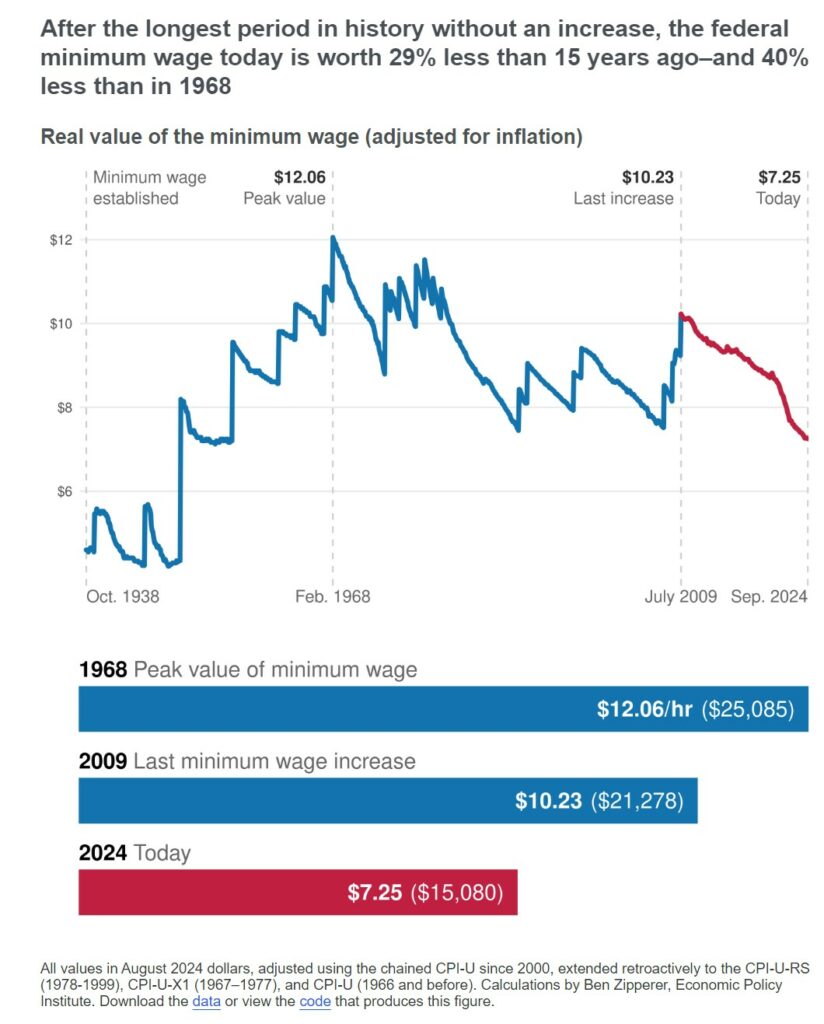Largely speaking direct labor is not the issue of costs have I have presented in another post. It is the overhead such as healthcare insurance which can better handled in another manner. Inflation grows and minimum wage income is stagnant. Studies have found little or no job loss due to Minimum Wage Laws, Economic Policy Institute There is always political heat around minimum wage increases, largely driven by concerns about job losses. The story goes, after a minimum wage increase many employers will not be able to afford to pay their workers the new higher minimum wage. They will then shrink their payrolls. If these job losses are large enough, they could even swamp the higher wages and lead to lower overall wage income for the entire group of
Topics:
Angry Bear considers the following as important: minimum wage laws, US EConomics
This could be interesting, too:
NewDealdemocrat writes JOLTS revisions from Yesterday’s Report
Bill Haskell writes The North American Automobile Industry Waits for Trump and the Gov. to Act
Bill Haskell writes Families Struggle Paying for Child Care While Working
Joel Eissenberg writes Time for Senate Dems to stand up against Trump/Musk
Largely speaking direct labor is not the issue of costs have I have presented in another post. It is the overhead such as healthcare insurance which can better handled in another manner. Inflation grows and minimum wage income is stagnant.
Studies have found little or no job loss due to Minimum Wage Laws, Economic Policy Institute
There is always political heat around minimum wage increases, largely driven by concerns about job losses. The story goes, after a minimum wage increase many employers will not be able to afford to pay their workers the new higher minimum wage. They will then shrink their payrolls. If these job losses are large enough, they could even swamp the higher wages and lead to lower overall wage income for the entire group of affected workers.
Actual evidence shows this narrative is largely wrong. A new review that I co-authored with Arindrajit Dube finds that most minimum wage studies find no job losses or only small disemployment effects. In other words, the vast majority of minimum wage research implies minimum wage policies have unambiguously raised the total earnings of low-wage workers.
This conclusion is strengthened by focusing on the studies that examine broad groups of low-wage workers or the overall workforce, not just narrow segments like teenagers. As the figure below shows, the median employment response is essentially zero among these more comprehensive studies, with 90% of these studies finding no or only small disemployment effects.
The new review standardizes the estimates of each study by measuring employment responses relative to how much actual wages rose as a result of minimum wage increases. Earlier reviews of minimum wage research often mixed different types of employment estimates and ignored how much the minimum wage was actually raising wages. The findings were difficult to interpret and not useful to those trying to predict the effects of a prospective minimum wage increase. In particular, these other reviews produced results that could not directly answer the question of whether any job loss they measured was very small or very large, or whether low-wage workers as a group saw increases in annual earnings after a minimum wage increase.
In addition to providing more helpful estimates from minimum wage studies, the new review is accompanied by an online repository of the underlying data. For every study published since 1992, the repository contains a representative estimate of the employment response for a given wage increase due to minimum wage changes. The repository is a living document and will continue to be updated in order to provide the most current view of the evidence.
Older research found more sizable disemployment effects. But with improvements in research methodology over time, the conclusions of studies have shifted dramatically in the last 15 years. The median employment response to wage increases for studies published since 2010 is very close to zero.1
Minimum wage policies are one of the most well-studied topics in economic research, and the over-whelming conclusion is that minimum wage increases to date have successfully raised the pay of low-wage workers. Conversely, our failure has been not to raise minimum wages and in particular the national minimum wage. It has fallen 29% in inflation-adjusted terms in the past 15 years. The results have suppressed wages for millions of low-wage workers trying to make ends meet.
Minimum wage own-wage elasticity repository – OWE repository
1. See Figure 7 of the review, which also shows that the median own-wage elasticity of employment for studies published between 2010 and 2024 is -0.04.


